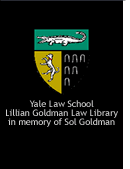
 |
 |
- produced by Samantha Chaifetz, Jeremy Rossman and Patrick Keefe A Bibliography of Further Sources on Winnie Madikizela-Mandela BOOKS Biographies of Nelson and Winnie Madikizela-Mandela: Benson, Mary, Mandela: The Man and the Movement (New York: WW Norton, 1986) This book about Nelson Mandela was written while he was in prison, and is based largely on South African journalist Benson’s interviews with Winnie Madikizela Mandela.
Du Preez Bezdrob, Anne Marie, Winnie Mandela: A Life (Struik Publishers, Forthcoming, July 2005)
Gilbey, Emma, The Lady: The Life and Times of Winnie Mandela (London: Jonathan Cape, 1993) Gilbey’s biography of Winnie Madikizela Mandela is the most objective and comprehensive volume available, though current editions do not reflect developments beyond the mid-1990s. Nevertheless, Gilbey traces Madikizela Mandela’s childhood, her involvement in the political struggle, her marriage to Nelson Mandela, and events surrounding the formation of the Mandela United Football Club and her eventual conviction for authorizing abductions, and being an accessory to violence.
Harrison, Nancy, Winnie Mandela: Mother of a Nation (Gloancz, 1985) This is an authorized biography, and is highly favorable to Ms. Mandela.
Mandela, Nelson, Long Walk to Freedom (Boston: Back Bay Books, 1995) Nelson Mandela’s own memoir.
Mandela, Winnie Madikizela, Part of My Soul Went with Him (New York: WW Norton, 1985) This volume is a collection of interviews with Ms. Mandela and of excerpts from her correspondence with Nelson Mandela.
Meer, Fatima, Higher than Hope: The Authorized Biography of Nelson Mandela (New York: HarperCollins, 1991) This book includes a forward by Winnie Madikizela Mandela.
Meredith, Martin, Nelson Mandela: A Biography (New York: St Martins Press, 1998) While this comprehensive biography focuses on Nelson Mandela’s life and relationships, the relationship between Nelson and Winnie features in it, and it stretches into the later 1990s. Sampson, Anthony, Mandela: The Authorized Biography (New York: Knopf, 1999) This biography, by British journalist Anthony Sampson, who first met Nelson Mandela in 1951, reflects Sampson’s access to many of Mandela’s unpublished letters and documents. Sampson also draws on interviews with Winnie Madikizela Mandela.
Books on the End of Apartheid, Transition, the Truth and Reconciliation Commission, and the Mandela United Football Club:
Bridgland, Fred, Katiza’s Journey (London: MacMillan, 1997) This book is about Katiza Cebekhulu, a one-time member of the Mandela United Football Club and a pivotal figure in the case of Winnie Madikizela Mandela. Cebekhulu was a codefendant in Madikizela Mandela's 1991 trial, but disappeared before testifying. From exile in Britain, Cebekhulugave interviews to British journalist Bridgland, and claimed that he had seen Madikizela-Mandela stab Stompie Seipei. Note: some of the details and chronology in this book were called into question by the South African press and public after publication.
Krog, Antijie, Country of My Skull: Guilt, Sorrow, and the Limits of Forgiveness (New York: Crown, 1999) Krog’s account of the Truth and Reconciliation Commission includes a chapter on Winnie Madikizela Mandela’s appearance.
Meredith, Martin, Coming To Terms: South Africa's Search for Truth ( New York: PublicAffairs, 2000) Meredith’s account of the TRC is more dispassionate and journalistic than Krog’s, more comprehensive, if less emotionally engaging. Meredith is critical of the African National Congress, arguing that through the TRC is sometimes sought its own exoneration at the expense of the truth. The forward and afterward by Pulitzer Prize winning writer Tina Rosenberg, author of The Haunted Land, are more optimistic about the outcome of the TRC, and endeavor to place it in comparative perspective, highlighting the efforts of other countries in Europe and Latin America to deal with their own brutal pasts.
Tutu, Archbiship Desmond, No Future Without Forgiveness (New York: DoubleDay, 1999) Includes Tutu’s own account of Winnie Madikizela Mandela’s appearance before the Truth and Reconciliation Commission.
Waldmeir, Patti, Anatomy of a Miracle: The End of Apartheid and the Birth of the New South Africa (NY: W.W. Norton, 1997). This book is primarily about Nelson Mandela and F.W. de Klerk, and their successful efforts to bring about the end of Apartheid and the beginning of black political leadership in South Africa without the catastrophic bloodshed and strife many predicated.
General Background and South African History:
Leonard Thompson, A History of South Africa, revised edition ( New Haven: Yale University Press, 1995). For background in South African history and the emergence of the various groups that play a role in the Winnie Madikizela Mandela story, this is the authoritative history.
Miscellaneous:
Ndebele, Njabulo, Cry of Winnie Mandela ( Cape Town: Ayebia Publishing, 2004) Ndebele’s book is a novel about four women who discuss Winnie Madikizela Mandela as a kind of metaphor for their own predicaments. The book was nominated for a major literary prize in South Africa.
Cock, Jacklyn, Colonels & Cadres: War & Gender in South Africa, (Cape Town: Oxford University Press, 1991) An examination of violence in South African society from the point of view of gender relations and power dynamics between men and women.
ARTICLES Press Reports: Bain, George, “The Mystery of Winnie Mandela,” Maclean's, March, 1989.
Bandele, Asha, “The Trials of Winnie Mandela,” Essence, May, 2004.
Beresford, David, “Row Over ‘Mother of the Nation,’” The Guardian, January 27, 1989. Bierman, John, “A Case in Jeopardy,” Maclean's, February 1991. Bierman, John, “Mandela's Pain,” Maclean's, May 1991. Bilski, Andrew and Chris Erasmus, “Mother of the Nation: Winnie Mandela Stages a Comeback,” Maclean's, February 1990.Carlin, John, “Blood Soccer,” The New Republic, February, 1991.
Cose, Ellis, “The Limitations of the Truth,” Newsweek, November 2, 1998.
Dunn, Kate, “Winnie Under Fire,” Maclean’s, December 15, 1997.
The Economist, “Teflon Winnie,” The Economist, May 10, 1997 Edwards, Audrey, “The leaders of the movement,” Essence, October 1997. Erasmus, Chris, “The stain on the Teflon queen,” Maclean's, March 1995.
Jaffrey, Zia, Desmond Tutu Interview, The Progressive, February 1998.
Mabry, Marcus, “The Case Against Winnie,” Newsweek, December 15, 1997. Martin, Paul, “Mugger of the nation,” The Spectator, December 1997. Meredith, Martin, "The Trouble with Winnie." New Statesman. 26 September 1997. Robinson, Stephen, “Winnie Loses All,” The Spectator, February 1991. Sithole, Nokwanda, “Winnie Mandela: Her story,” Essence, April 1994. Smolowe, Jill, “Winnie's Walk into Obscurity,” Time, April 1992. Somerville, Keith, “Winnie: ‘ Africa’s Evita,’” BBC News Online, April 24, 2003. Walker, Alice, “Mandela,” Ms., May 1991.
Scholarly Journals:
Harber, Anton, “Reflections on Journalism in the Transition to Democracy,” Ethics & International Affairs, Vol. 18, Issue 3, 2004.
Meintjes, Sheila, “Winnie Madikizela Mandela: Tragic Figure? Populist Heroine? Township Tough?” Southern Africa Report, Vol. 13, No. 4, August 1998. Klopper, Dirk, “Narrative Time and the Space of the Image: The Truth of the Lie in Winnie Mandela-Madikizela's Testimony before the Truth and Reconciliation Commission,” Poetics Today, Vol. 22, No. 2 (2001). MacDonald, Michael, “Power Politics in the New South Africa,” Journal of Southern African Studies , Vol. 22, No. 2 (June 1996). McClintock, Anne, “No Longer in a Future Heaven: Women and Nationalism in South Africa,” Transition, No. 51 (1991). Nixon, Robert, “Mandela, Messianism, and the Media,” Transition, No. 51 (1991).
Pohlandt-McCormick, Helena,“Controlling Woman: Winnie Mandela and the 1976 Soweto Uprising,” International Journal of African Historical Studies, Vol. 33, Issue 3, 2000. Stohl, Michael, “Outside of a Small Circle of Friends: States, Genocide, Mass Killing and The role of Bystanders,” Journal of Peace Research, Vol. 24, no. 2 (June 1987). Welsh, David, “The Outlook for a Democratic South Africa,” International Affairs , Vol. 67, no. 4 (October 1991).
|
|
| Return to Multimedia Page | List of Websites | Back |
|